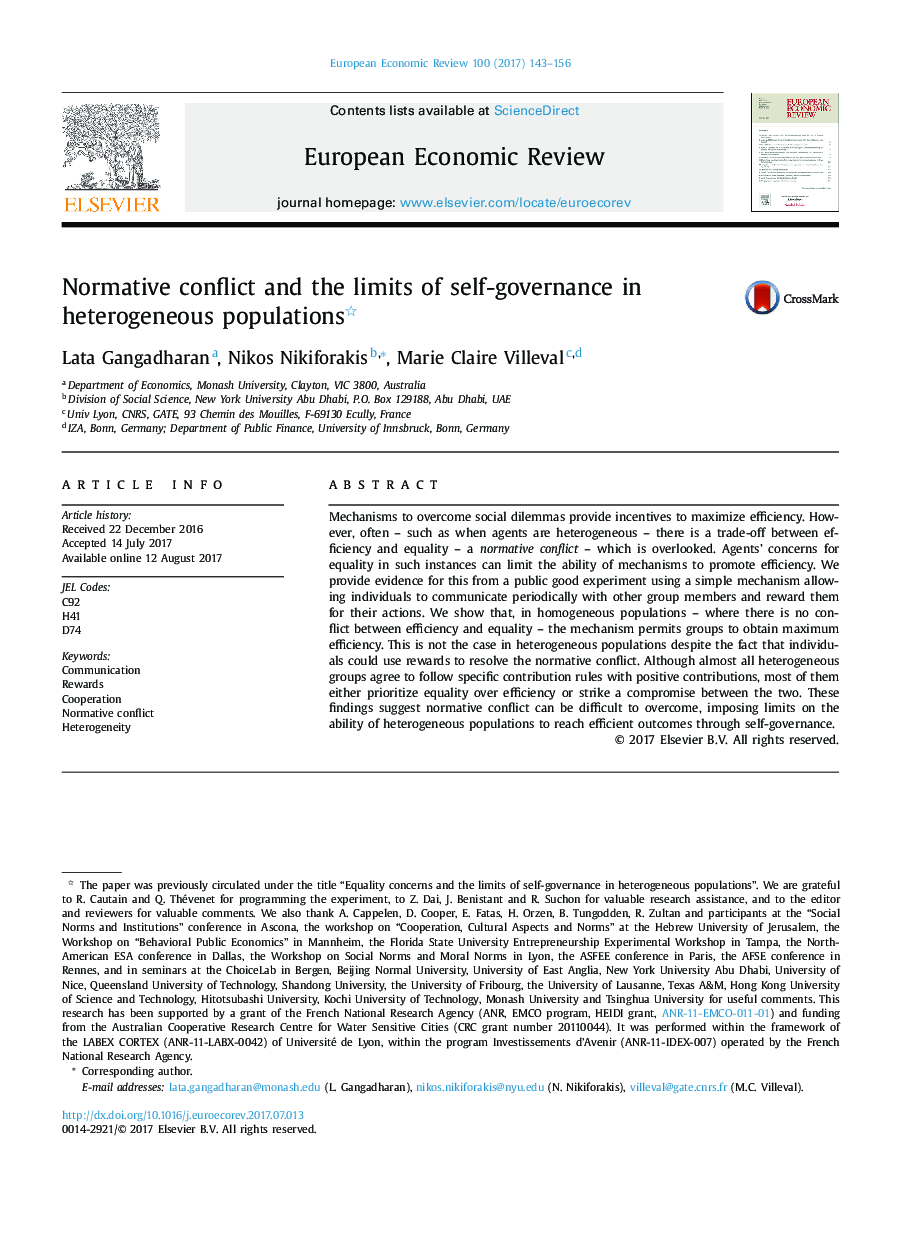| Article ID | Journal | Published Year | Pages | File Type |
|---|---|---|---|---|
| 5066237 | European Economic Review | 2017 | 14 Pages |
Mechanisms to overcome social dilemmas provide incentives to maximize efficiency. However, often - such as when agents are heterogeneous - there is a trade-off between efficiency and equality - a normative conflict - which is overlooked. Agents' concerns for equality in such instances can limit the ability of mechanisms to promote efficiency. We provide evidence for this from a public good experiment using a simple mechanism allowing individuals to communicate periodically with other group members and reward them for their actions. We show that, in homogeneous populations - where there is no conflict between efficiency and equality - the mechanism permits groups to obtain maximum efficiency. This is not the case in heterogeneous populations despite the fact that individuals could use rewards to resolve the normative conflict. Although almost all heterogeneous groups agree to follow specific contribution rules with positive contributions, most of them either prioritize equality over efficiency or strike a compromise between the two. These findings suggest normative conflict can be difficult to overcome, imposing limits on the ability of heterogeneous populations to reach efficient outcomes through self-governance.
